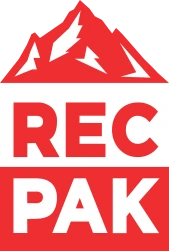
Best Foods for Backpacking: Complete Trail Nutrition Guide 2025
Share
When you're miles from civilization with everything you need strapped to your back, the best foods for backpacking become one of the most critical decisions you'll make. Your backpacking food choices affect not only your energy levels and performance but also your pack weight and overall experience.
This comprehensive guide to trail nutrition will help you select the optimal hiking food and backpacking nutrition strategy for any adventure.

The Science of Trail Nutrition
Backpacking nutrition dramatically increases your body's nutritional demands. Understanding these changes helps optimize your backpacking food choices and trail nutrition strategy:
Macronutrient Balance
Balancing these macronutrients is essential when selecting the best foods for backpacking and planning effective trail nutrition.
Carbohydrates: Your primary fuel source on the trail, providing quick energy and giving your muscles the fuel they need to keep you going. Aim for 50-60% of your calories from complex carbs that release energy gradually. During high-intensity activity, you can utilize approximately 30-60g of carbohydrates per hour.
Protein: Essential for muscle repair and recovery, especially important during multi-day trips. Hikers need approximately 1.2-1.6g per kg of body weight daily which is significantly higher than sedentary individuals. RecPak's 43g protein content helps meet this increased demand during a single meal.
Fats: The most calorie-dense nutrient (9 calories per gram vs. 4 for protein/carbs), making it weight-efficient. Quality fats provide sustained energy for lower-intensity, longer-duration activities like hiking. Aim for 25-35% of your calories from healthy fats.
Micronutrient Considerations
Complete backpacking nutrition solutions like RecPak include these essential micronutrients, which are often missing from simple hiking food options. Extended outdoor activities increase your need for:
- Electrolytes (sodium, potassium, chloride, magnesium) lost through sweat
- B vitamins, which support energy metabolism
- Antioxidants that help reduce inflammation and support recovery
- Iron lost through increased red blood cell breakdown, particularly important for female athletes
Complete nutrition solutions like RecPak include these essential micronutrients, which are often missing from simple trail snacks.
Hydration Integration

The ideal trail nutrition system coordinates with your hydration strategy. Backpacking food choices should support both nutrition and hydration needs.
Proper hydration and electrolyte balance are critical for backcountry performance. Many hikers focus solely on water intake but neglect electrolyte replacement, leading to potential performance issues and cramping. While traditional electrolyte tablets or powders can be added to water, nutrition solutions like RecPak integrate balanced electrolytes within their formulation. This approach ensures you're replenishing essential minerals like sodium, potassium, chloride and magnesium along with your nutrition, supporting proper muscle function and fluid balance during extended activity.
Seasonal Meal Planning
Summer Hiking
In warmer conditions, focus on:
- Electrolyte-rich foods to replace what's lost through increased sweating
- Foods that remain palatable in heat (avoid chocolate and soft cheeses)
- Higher water content foods when appropriate
- Liquid nutrition like RecPak, which can be more appealing when appetite decreases in heat
Shoulder Season & Winter
As temperatures drop:
- Increase overall caloric intake as cold weather hiking can burn 10-25% more calories
- Prioritize hot meals and drinks for psychological comfort and core warming
- Include more fats for sustained warmth production
- Plan for meals that can be prepared quickly in challenging conditions
Meal Planning by Trip Length
Weekend Trips (1-3 days)
You can afford slightly heavier, less processed foods. Fresh items can be included for the first day, transitioning to preserved options.
Extended Journeys (4-7 days)
Balance weight concerns with nutritional completeness. This duration often necessitates the most careful planning to avoid carrying excessive weight while maintaining adequate nutrition.
Long-Distance Treks (7+ days)
Requires strategic resupply points or extremely lightweight, calorie-dense nutrition. Nutritional completeness becomes critical to avoid deficiencies. Incorporating specialized products like RecPak can significantly reduce weight while ensuring complete nutrition.

Balancing Nutrition, Weight, and Convenience
The best foods for backpacking strike a delicate balance between nutritional density, minimal weight, and ease of preparation. Here's what to consider when planning backpacking nutrition:
Breakfast
Quick options: Instant oatmeal, breakfast bars, or instant coffee provide quick energy to start your day.
Camp mornings: When you have time at camp, consider more substantial options like dehydrated egg scrambles or pancake mixes.
Lunch & On-the-Trail Nutrition
This is where trail nutrition efficiency becomes crucial. You need portable hiking food that doesn't require stopping to prepare.
Traditional backpacking food options include: Trail mix, energy bars, and jerky - but these hiking food choices often lack complete backpacking nutrition:
- Trail mix combines nuts, dried fruit, and sometimes chocolate for a calorie-dense snack, but still lacks the full-spectrum of nutrition.
- Energy bars provide compact calories but often lack complete nutrition
- Jerky offers protein but needs to be paired with carbohydrates
Modern solution: RecPak offers a revolutionary approach to trail nutrition and represents evolution in backpacking food. Unlike traditional hiking food that provides incomplete nutrition or meals that require preparation time, RecPak delivers a complete 700-calorie meal in a lightweight, durable pouch that fits in your pocket. Simply add water, shake, and drink while you continue hiking. Designed by top sports nutritionists, it provides balanced macronutrients (42g protein, 91g carbohydrate, and 20g fat) and essential micronutrients to maintain energy levels during demanding activities.
RecPak is particularly valuable when:
- Covering significant distance requires continuous movement
- Weather conditions make stopping impractical
- You're trying to minimize pack weight
- Time constraints demand efficiency
- Preserving fuel for at-camp meals
Dinner
After a long day on the trail, a hot meal can be both nutritionally replenishing and psychologically rewarding.
Freeze-dried meals: Lightweight and simple to prepare by just adding boiling water.
DIY options: Pre-packaged pasta, rice, or couscous with dried vegetables and seasonings.
The Psychological Aspect of Trail Food
Never underestimate the morale boost that comes from enjoying your food in the backcountry. While nutrition and weight are primary concerns, flavor satisfaction can significantly impact your mental state after challenging days.
Putting It All Together: A Sample Day
Morning: Quick oatmeal with dried fruit and instant coffee
During hiking: RecPak at midday provides complete nutrition without stopping your momentum. The resealable spout allows you to consume it at your own pace while continuing to make progress on the trail.
Afternoon boost: Trail mix and jerky for quick energy
Evening: Freeze-dried meal at camp, perhaps followed by a small dessert
Conclusion
Successful backpacking nutrition isn't about eliminating comfort, it's about making strategic backpacking food choices. The best foods for backpacking optimize your energy while minimizing pack weight. By incorporating efficient trail nutrition solutions alongside traditional hiking food, you can stay properly fueled throughout your adventure.
Remember: the best food system is the one that works for your specific trip, body, and preferences. Experiment before major expeditions to discover your optimal trail nutrition strategy.
